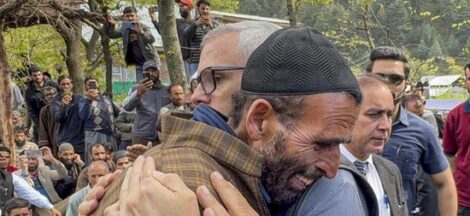A meticulously orchestrated fabrication of merit lists in the Metropolitan Transport Corporation hiring process has drawn sharp criticism from the Madras High Court, which characterised the manipulation as a “scientific” operation designed to enable corruption.
During a hearing on Monday, the court pointed to a well-planned scheme in which the scores of genuinely meritorious candidates were doctored to facilitate the selection of favoured individuals in appointments for junior and assistant engineer posts at the MTC. The alleged misconduct traces back to 2015, when V Senthil Balaji served as the Minister for Transport. Justice G Jayachandran, presiding over the case, remarked that the falsification of scores was not an isolated occurrence but part of a systemic subversion of the recruitment process, demonstrating a high degree of premeditation.
According to findings presented during the judicial proceedings, candidates who ranked high in the written examinations and interviews were sidelined through the manipulation of their marksheets. Scores were allegedly reduced or tampered with to make way for others who had paid bribes, thereby undermining the principle of merit-based selection. The court was informed that these activities were not the result of mere negligence or individual misconduct but were executed through a collective effort involving various levels of administration within the MTC and the department concerned.
V Senthil Balaji, currently a minister without portfolio in the Tamil Nadu government, has been a figure of considerable political attention, particularly after his arrest by the Enforcement Directorate in a separate money laundering investigation linked to the same recruitment scandal. Although Balaji has denied any wrongdoing and claims political vendetta, the court’s observations strengthen the allegations that the cash-for-jobs scam during his tenure was not only rampant but also methodically structured.
The revelations surrounding the scam came to light during a detailed investigation initiated after several complaints from unsuccessful candidates who had secured high marks yet found themselves excluded from the selection list. The probe, according to material placed before the court, revealed clear discrepancies between the marks awarded in the original evaluations and those reflected in the final appointment list.
Justice Jayachandran noted that the scandal’s architecture reflected a “scientific” approach to corruption, highlighting the deliberate nature of the tampering and the coordination among different actors. He commented that such systematic alteration of evaluation outcomes could not have occurred without the active involvement of those in influential positions, suggesting a broader conspiracy beyond the visible perpetrators.
Testimonies from former officials, cross-verification of documents, and forensic examination of records all point towards a pattern of manipulation. Forensic analysis confirmed instances where ink used for marking had been chemically altered or overwritten, indicating post-evaluation tampering. Moreover, several candidates whose marks were inflated had connections with political figures or had allegedly paid significant sums to middlemen operating within the system.
The court also reflected on the larger implications of such corruption, lamenting that institutional trust was eroded when meritocracy is sacrificed for monetary gains. Justice Jayachandran observed that public institutions like the MTC, which form the backbone of urban transportation and require technically competent personnel, suffer long-term damage when unqualified candidates are placed in critical roles. He stressed that this undermines not only the efficiency of the service but also public faith in government recruitment processes.
V Senthil Balaji’s political career has faced significant turbulence since these allegations surfaced. Following his arrest, there has been considerable debate within political circles about his role and the extent of accountability within the governing party. Despite mounting legal challenges, Balaji continues to retain a ministerial position, a situation that has attracted criticism from opposition parties, who have called for greater accountability and transparency.
The court’s characterisation of the scam as a “master plan” is likely to add momentum to calls for a deeper probe, possibly extending to those who occupied senior bureaucratic positions during the period. Observers note that the case has broader ramifications for governance standards in Tamil Nadu, and could set a precedent for judicial scrutiny of other recruitment processes marred by allegations of favouritism and financial impropriety.
The Madras High Court’s remarks come at a time when public discourse across India has been sharply focused on the integrity of government recruitments. From state-level competitive exams to national recruitment agencies, concerns have been raised about transparency and the safeguarding of meritocracy. The detailed observations in this case add a fresh layer of urgency to those conversations, particularly as the judiciary has now explicitly recognised the emergence of “scientific corruption” techniques within public institutions.
The next phase of judicial proceedings will likely focus on determining individual culpability, potential criminal conspiracy charges, and the framing of further charges under the Prevention of Corruption Act. Legal experts predict that the court’s strong remarks could influence the pace and direction of the ongoing investigations by both state vigilance departments and central agencies.
For the candidates whose futures were derailed by the scandal, the court’s findings offer a measure of vindication, even as the long road to justice continues. Advocacy groups representing affected individuals have called for the annulment of the tainted appointments and the conduct of fresh recruitment processes with enhanced transparency measures. Some affected candidates have already initiated civil suits seeking compensation for the damage to their careers and reputations.
Political analysts suggest that the case’s trajectory will have significant consequences for the state’s political landscape. With elections due next year, parties are expected to use the issue of corruption in public appointments as a key talking point, potentially impacting voter sentiment. The opposition is also likely to press for legislative reforms aimed at creating independent oversight bodies for government recruitments.
The Madras High Court is expected to continue monitoring the case closely, with further hearings scheduled in the coming weeks to assess compliance with its directions and to ensure that corrective measures are put in place.




